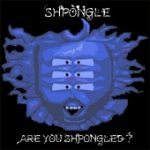| Author
|
An insight in2 melodies and psy
|
Jikkenteki
Jikkenteki

Started Topics :
20
Posts :
356
Posted : Sep 29, 2006 04:45
|
Quote:
|
On 2006-09-29 03:24, UnderTow wrote:
Boy am I lost in this thread. I think you all lost me at post number two but I'm probably being optimistic and you really lost me at post Nr 1. 
djzed, can you tell me in what Key/Scale/Chord this is in: http://home.casema.nl/ajohnston/Loki-Monster_Pro-33.mp3
|
|
Don't feel bad, there is a lot of misuse of musical vocab here which is even causing me a lot of confusion as well and I know musical theory better than most.
I'm not djzed, but as for you track, its in G minor. Because of the pitch slides and such a few random notes might fall outside of the G minor scale, but all the important fundamental notes are there. As an aside, almost all trance is minor or a minor mode, or atonal but with a minor flavor.
        New Album: Jikkenteki - Flights Of Infinity New Album: Jikkenteki - Flights Of Infinity
Available for free at http://www.ektoplazm.com/free-music/jikkenteki-flights-of-infinity/
PAR-2 Productions http://www.par-2.com |

|
|
UnderTow

Started Topics :
9
Posts :
1448
Posted : Sep 29, 2006 04:53
|
Thanks Jikkenteki. I knew it wasn't major because it doesn't sound like pure cheese.  (At least to my ears). But that is about as far as my music theory goes. (At least to my ears). But that is about as far as my music theory goes. 
UnderTow |

|
|
djzed

Started Topics :
3
Posts :
48
Posted : Sep 29, 2006 06:04
|
Quote:
|
On 2006-09-29 04:45, Jikkenteki wrote:
I'm not djzed, but as for you track, its in G minor.
|
|
Shutup, you can't answer the question if you're not me!
lol 
I think how it works with psytrance is that you can assume that a track is just in the minor key of the tonic note in the bass, unless there is a reason to think otherwise. By that I mean if there is a particular note that is being repetively played in the melody (or even bass) which goes outside the normal minor key. In that track the melody mainly hangs around G, the tonic, and there arn't any notes which suggest anything other than the minor.
Btw, does anyone agree with me that too many psy tracks just use melodies which stick too much on the tonic note (like the bassline) or does octave jumps on the tonic, and they get really boring? (New protoculture album comes to mind)
Making melodies that stay on the tonic note is a safe bet - it will ALWAYS work, but I think it is uncreative. |

|
|
UnderTow

Started Topics :
9
Posts :
1448
Posted : Sep 29, 2006 06:30
|
djzed: If you are feeling left out, you can tell me what this is in then: http://home.casema.nl/ajohnston/Loki-FB_16.mp3

I think there might be some note clashes there.
Btw, there is a track that uses only the white notes arround the black notes on a keyboard. That is major, right? (It certainly sounds cheesy!  . .
UnderTow |

|
|
Jikkenteki
Jikkenteki

Started Topics :
20
Posts :
356
Posted : Sep 29, 2006 06:49
|
Quote:
|
On 2006-09-29 06:04, djzed wrote:
Btw, does anyone agree with me that too many psy tracks just use melodies which stick too much on the tonic note (like the bassline) or does octave jumps on the tonic, and they get really boring? (New protoculture album comes to mind)
Making melodies that stay on the tonic note is a safe bet - it will ALWAYS work, but I think it is uncreative.
|
|
I agree. The bulk of trance melodies are basically just based around the notes of a minor 7 chord of whatever the tonic at the moment is, although you have to admit that those notes work for a reason.  It's really no different from guitartists who only use pentatonic scales in their solos. Sure the note choices are limited, but by the same tolken, there isn't a whole lot to go wrong either. Arpegiators don't help the situation much either. It's really no different from guitartists who only use pentatonic scales in their solos. Sure the note choices are limited, but by the same tolken, there isn't a whole lot to go wrong either. Arpegiators don't help the situation much either.
I agree that psy-artists could be a lot more harmonically interesting, but to possibly open a whole different can of worms, when I was studying jazz guitar back in school somewhere (I seem to think a video actually but I could be wrong) I ran across an interesting theory about what makes musical parts memorable to the listen that I think really nailed the issue.
Basically this theory says there are three factors in what makes a musical phrase memorable. They are, in decreasing order of importance.
1: Rhythmical phrasing. This is the most important. Usually when a phrase or a riff really grabs you, its the rhythm that sucks you in and gets the head bobbing. You can test this by just tapping the rhythm of many well know phrases on the table and people will recognize it.
2: Interval. That is to say the up/down changes in pitch. Exact notes aren't important here, rather just the fact that the pitch is going up or down a little or a lot. Basically percussion is a classic example because, even though yes you can tune drum heads, in the grand scheme of things the exact pitchs being played are not all that important. What is important is the rhythm and interaction or higher and lower pitched sounds (notes, high cymbals versus low toms, etc). Even your basic 4 to the floor banging beat is a good example low kick, high snare, low kick, high snare.
If you get these to down, most of the work is done. Honestly most psy-trance never gets past these two points and really it isn't always nessecary. An rhythmically interesting crazy line zipping up and down can be pretty damn effective.
3: Note choice. The final factor (and least important of the three) is the actual notes being played (i.e. what scale you are using or ignoring, etc). Of course this IS obviously an important issue, elsewise we wouldn't have several pages on the issue, but its kind of the final polish on a part. It can make it shine, or put kind of an ugly scratch in it, but the other two factors still carry more weight over all.
        New Album: Jikkenteki - Flights Of Infinity New Album: Jikkenteki - Flights Of Infinity
Available for free at http://www.ektoplazm.com/free-music/jikkenteki-flights-of-infinity/
PAR-2 Productions http://www.par-2.com |

|
|
UnderTow

Started Topics :
9
Posts :
1448
Posted : Sep 29, 2006 07:17
|
I meant "only the four white notes arround the three black notes" in my previous post.
UnderTow |

|
|
djzed

Started Topics :
3
Posts :
48
Posted : Sep 29, 2006 08:43
|
Quote:
|
On 2006-09-29 07:17, UnderTow wrote:
I meant "only the four white notes arround the three black notes" in my previous post.
UnderTow
|
|
You are confused. Don't worry I don't blame you, theory can get very technical  . So I'm gonna try and help you out of your confusion. . So I'm gonna try and help you out of your confusion.
It doesn't make any sense to say "this track uses these notes so it's major". Your question is like asking "If something is 3 meters wide, that makes it big, yeh?"
When we talk about scales, modes, chords and so on, we are talking about them with respect to the tonic note. In tonal music everything is relative to the tonic. The tonic could be any of the twelve notes in our musical system (C, C#, D, D# etc...). So the first step in analysing music is to figure out what the tonic is.
In psytrance this is dead easy. The tonic note is just that note which the bass keeps hitting. Once you know what the tonic is, you can analyse every other note and chord in terms of how it relates to the tonic.
Example: If the tonic is C, then D is the second (II), E is the third (III) and so on.
Now, any scale or mode can just be seen as a sequence of intervals of Tones/Semitones, starting from whatever the tonic is. (if you go to a piano, a semitone is just a step from one note to the very next note, whether they be white or black, and a tone is two semitones.)
The major scale is following sequence: - T - T - S - T - T - T - S -
The phrygian mode is this sequence: - S - T - T - T - S - T - T -
So the notes of C major are: C D E F G A B C
The notes of C phyrigian are: C Db Eb F G Ab Bb C
The notes of E phryhgian are: E F G A B C D E
If this doesn't make any sense to you, you'll need to go to a piano to see what I mean. You can see from the example above that the notes of C major and E phrygian happen to be exactly the same, but that doesn't mean they are the same scale because the TONIC is different.
So theres music theory 101. Hope it helps  . . |

|
|
bukboy
Hyperboreans

Started Topics :
40
Posts :
803
Posted : Sep 29, 2006 09:25
|
Thanks jikkenteki. thats a very useful insight.Will try 2 analyse all my favourite melodies with that in mind.
Boobytrip. I have no idea Y u think D and G are the best. ???? ???? ??? ?????? ?? ???? ???? ??? ?????? ?? |

|
|
Jikkenteki
Jikkenteki

Started Topics :
20
Posts :
356
Posted : Sep 29, 2006 10:29
|
Another way you could think of the rhythmic bit is that if you changed all the notes of your melody into simple snare hits, would it make for an usable percussion line....
All this talk of theory has got me thinking about doing a music theory 101 for trance page on my website someday. I always think about this when people start arguing over what time signatures are and confusing them with triplets and such. Maybe a page with screen shots and graphics to make it all understandable would be a good reference. Although when I'd have to time to make it is another issue.. lol
        New Album: Jikkenteki - Flights Of Infinity New Album: Jikkenteki - Flights Of Infinity
Available for free at http://www.ektoplazm.com/free-music/jikkenteki-flights-of-infinity/
PAR-2 Productions http://www.par-2.com |

|
|
bukboy
Hyperboreans

Started Topics :
40
Posts :
803
Posted : Sep 29, 2006 12:05
|
The problem with a music 101 page is that theres plenty of beginner sites already, but none with any intermediate 2 advanced info.
Boobytrip, would u also try 2 use different inversions of chords to keep the pitches similar? |

|
|
Jikkenteki
Jikkenteki

Started Topics :
20
Posts :
356
Posted : Sep 29, 2006 12:43
|
Quote:
|
On 2006-09-29 12:05, bukboy wrote:
The problem with a music 101 page is that theres plenty of beginner sites already, but none with any intermediate 2 advanced info.
|
|
That is because intermediate theory is experimenting and playing with it and advanced theory is throwing it all away and never thinking about it again because its been internalized. lol
That said, modal stuff and all is more intermediate material, especially if you start using modes of other scale types. The thing is is that trance really isn't complex enough for a lot of it to be usable as after a point you start drifting off into experimental jazz realms or what not and the dancefloor has probably emptied as well. Doing something new and fresh and different is of course very important, but doing some well is just as important.
        New Album: Jikkenteki - Flights Of Infinity New Album: Jikkenteki - Flights Of Infinity
Available for free at http://www.ektoplazm.com/free-music/jikkenteki-flights-of-infinity/
PAR-2 Productions http://www.par-2.com |

|
|
bukboy
Hyperboreans

Started Topics :
40
Posts :
803
Posted : Sep 29, 2006 12:46
|
Well Iv never seen any theory book say anything about ur "memorable melody" theory. And that is useful stuff that is not too advanced but no beginner book would ever mention.
Thats the stuff thats needed. not the complex modes stuff. |

|
|
djzed

Started Topics :
3
Posts :
48
Posted : Sep 29, 2006 13:39
|
Jikkenteki - I definately agree that the rhythm is the most "memorable" element of your melody, and it's probably even more true in trance because it's the repetitive rhythm that the brain latches onto.
I reckon a music theory 101 page would be great, especially if it was tailored specifically for trance. There's not even nearly as much material out there for music theory as there is for production.
The reason for this is, to be honest, you don't really need to know anything about theory to write a psy track. You can just put in a bassline, layer some interesting noises over the top and that is considered acceptable by many people.
But IMO, the best and most uplifiting tracks are the one's with melodies and harmonies that move you emotionally and they are the one's that truly manage to evoke the "trance" state of conciousness. And if you want to learn how to do that you need to at least understand the basics of music theory. |

|
|
Boobytrip
IsraTrance Junior Member

Started Topics :
39
Posts :
988
Posted : Sep 29, 2006 14:06
|
Quote:
|
On 2006-09-29 09:25, bukboy wrote:
Thanks jikkenteki. thats a very useful insight.Will try 2 analyse all my favourite melodies with that in mind.
Boobytrip. I have no idea Y u think D and G are the best. ???? ???? ??? ?????? ?? ???? ???? ??? ?????? ??
|
|
I don't think they ARE (objective) the best, it's just that I LIKE (subjective) their sound better than the others, which tells me that the key matters, at least to some degree 
Quote:
|
The problem with a music 101 page is that theres plenty of beginner sites already, but none with any intermediate 2 advanced info.
Boobytrip, would u also try 2 use different inversions of chords to keep the pitches similar?
|
|
I think that if i would use inversions, i would create several chords that would be enharmonic (same chord, with another name) with chords in the other sequences and the same chord will obviously sound the same as itself.
@Jikkenteki: nice info's thanks.
@ Undertow: amazing choons you have there (who needs music theory anywayz  ), looking forward to hear the rest ), looking forward to hear the rest
|

|
|
bukboy
Hyperboreans

Started Topics :
40
Posts :
803
Posted : Sep 29, 2006 14:15
|
Boobytrip. yes u will have 2 re-arrange the other chords as well. What Im curious about is whether u would prefer different motions if they were all in the same frequency range.
Then again. man I have no idea what 2 do if u say its not objective in the 1st place.
There are subjective and objective judgements 2 be made about music. and the objective observations about music that count are stuff like, complexity of composition(theory involved), skill in performance, complexity of synthesis... etc
And I cant imagine an objective (compositional)reason Y some1 would prefer a scale over another on objective grounds other than because it uses less black keys  |

|
|
|